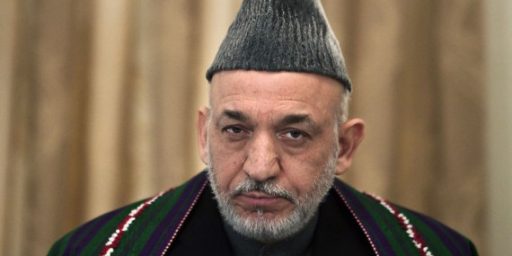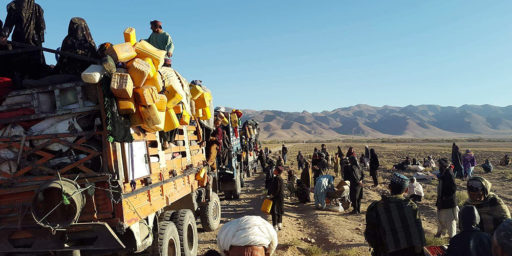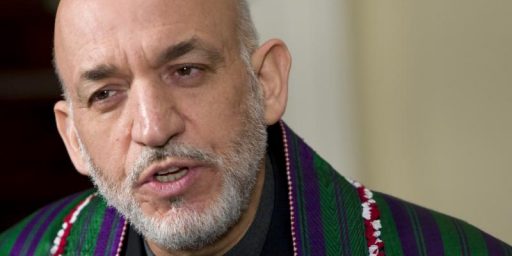Fight Less, Win More
Nathaniel Fick, a former Marine captain and veteran of the fighting in Afghanistan and Iraq, is now back in Afghanistan teaching counterinsurgency. What he’s teaching is pretty basic COIN doctrine:
Welcome to the paradoxical world of counterinsurgency warfare — the kind of war you win by not shooting.
The objective in fighting insurgents isn’t to kill every enemy fighter — you simply can’t — but to persuade the population to abandon the insurgents’ cause. The laws of these campaigns seem topsy-turvy by conventional military standards: Money is more decisive than bullets; protecting our own forces undermines the U.S. mission; heavy firepower is counterproductive; and winning battles guarantees nothing.
That’s all true, of course, even though it goes against every instinct of the American soldier. Still, actually implementing these tenets is no simple task.
Consider, for example, the question of roads. When U.N. teams begin building new stretches of road in volatile Afghan provinces such as Zabul and Kandahar, insurgents inevitably attack the workers. But as the projects progress and villagers begin to see the benefits of having paved access to markets and health care, the Taliban attacks become less frequent. New highways then extend the reach of the Karzai administration into previously inaccessible areas, making a continuous Afghan police presence possible and helping lower the overall level of violence — no mean feat in a country larger and more populous than Iraq, with a shaky central government.
Elementary, really. But the guerrillas know that, too. And it only takes a couple of well-placed, well-timed attacks to destroy months of work and millions of dollars of assets. Still, two steps forward, one step back is better than no steps forward.






This reminds me of an old Bill Cosby skit where he talks about driving on a icy road when the car suddenly goes into a skid. He remembers from driver ed class that, when skidding, the driver should turn in the direction of the skid. Cosby then, in his own very unique and ingenious style, muses that to him that sounds like being in a boxing match and leaning into a punch. So of course he steers in the opposite direction and the rest of the skit is hilarious.
While this method of fighting insurgents may be the correct approach (I have no expertise here), it does seem counter intuitive. It seems to have elements of Gandhi’s passive resistance philosophy which proved very effective for him.
However, the bottom line still remains that there are people out there who are conducting armed aggression and to me it would seem that, to one degree or another, they need to be hunted down and killed. While we may not be able to kill them all, one would hope that they eventually get the message that they can not win by fighting against a superior military force.
James, thanks for the link. Instructive reading, especially when paired with the NY Times article today “How a Good war In Afghanistan Went Bad“. Security in Afghanistan has definitely deteriorated since the heady days of 2003 – and every step can be attributed directly to a concentration on Iraq which starved Afghanistan of troops, aid, a focus on AQ and the Taliban and even an opportunity to take a step back and re-evalute COIN doctrine.
Regards, C